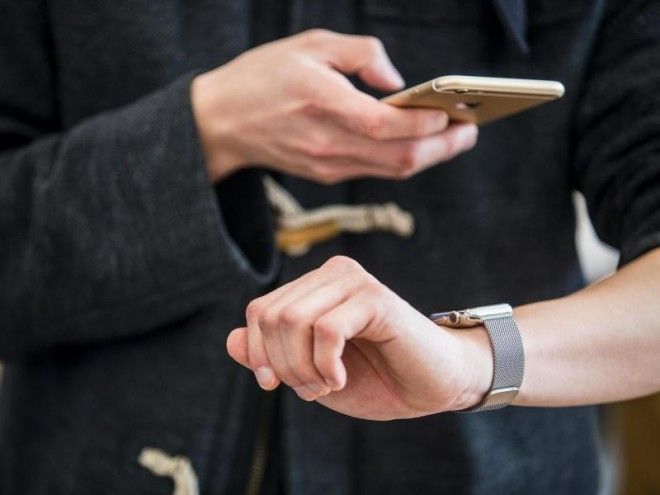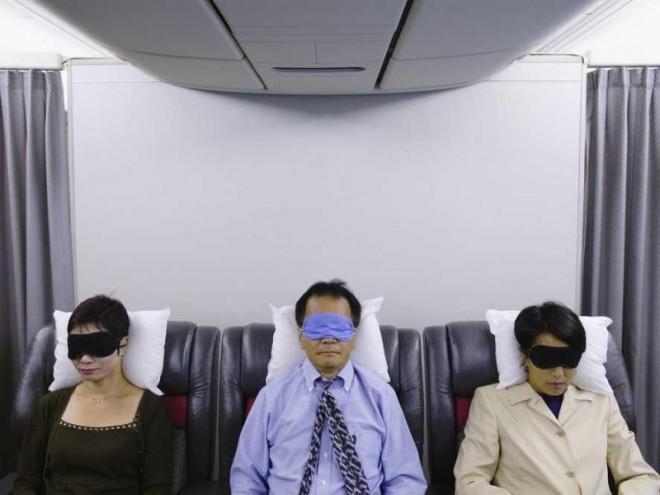But there's also nothing that can dampen the experience quite like jet lag.
That's why it's important to know how to adjust to a time change while traveling, so you can actually stay awake, and have some fun. Because even the slightest of changes — say, from the east coast to the west coast — can really throw you off. Now imagine going to Europe, Asia, or Australia, and you're really in for an experience.
Jet lag happens when you cross two or more time zones, thus throwing off your circadian rhythm, which regulates your sleep-wake cycle, according to the Mayo Clinic. When this internal sleep clock is out of sync with you're new location, it's possible to feel all sorts of awful.
You'll know jet lag has struck when you feel tired and unwell during the day, and struggle to sleep at night. You may even experience mood changes, diarrhea, or constipation. In short, it's not fun.
Luckily, there are a bunch of ways you can prepare for your trip, and adjust your sleep clock to avoid jet lag. Here are a few ways to do just that.
1. Keep In Mind The Direction You're Traveling
You might think a time change is a time change, but which direction you travel can make a major difference. "Most people ... have an internal body clock that makes it harder for them to travel east," said Stephanie Rosenbloom in the New York Times. "If you’re traveling east and want to adapt to the new time, you will have to wake up earlier and go to bed earlier than you normally would. This is known as advancing your body clock." When heading west, do the opposite.
2. Adjust Your Sleep Schedule Before You Leave
Several days before you leave, start adjusting your sleep schedule to your destination's time. As Belle Beth Cooper noted on Lifehacker.com, "Some studies have shown that attempting to advance or delay your body clock gradually before you travel can make the adjustment faster and easier on your body, reducing the effects of jet lag." Here's hoping you land feeling magically adjusted.
3. Expose Yourself To Light, The Right Way
Daylight, or a lack of it, plays a huge role in signaling to your body that it's time to rest. So it makes sense that adjusting your light exposure could trick your brain into adjusting to a time change. "If you are traveling east, you must expose yourself to light early, advancing your body clock so that it will be in sync with the new time zone," Rosenbloom explained. "Conversely, if traveling west, you should expose yourself to light at dusk and the early part of the evening, delaying your body clock so that it will be in sync with the new time zone." It is totally worth a try.
4. Pop Some Melatonin
Try to avoid sleep aids while traveling, as it's much better to go about this shift naturally. But if you must pop a pill, reach for some melatonin. "Melatonin is the chemical your brain releases to make you sleepy ... [and] one study found that a dose of 5mg of melatonin in the early evening helped participants to adjust to new time zones faster," Cooper said. Just talk to your doctor first.
5. Reset Your Watch ASAP

Change the time to your destination time zone as soon as departing
A vacation should start the moment you leave your apartment. Kick back on the plane, open a magazine, and start daydreaming about all those piña coladas you're about to drink. Oh, and remember to reset your watch. Doing so can help your brain adjust to the time zone before you even land, according to WebMD.
6. Stay On Your Home Time
For shorter trips, the best way to deal with jet lag is to simply power through until you get home again. "Three days or less, for instance, is barely enough time to adjust, so it may not be worth the effort," Cooper noted.
Advertising
7. Stay As Hydrated As Possible
It's well-known that traveling is a super dehydrating prospect. But not getting enough fluids can do more than dry out your skin. Dehydration makes it more difficult for the body to adjust to the new rhythm, according to WebMD. So be sure to carry a water bottle, and sip away.
8. Skip Out On The Alcoholic Beverages
I know, one of the best things about settling in on the plane is ordering up a beer, or a glass of wine. (Or both.) But this adds to the aforementioned dehydration problem, according to Scott Mayerowitz on TravelandLeisure.com. It can also cause headaches, and therefore may not be worth it. Sigh.
9. Eat Breakfast When You Land

It's funny how we associate certain foods with certain times of the day. (It's precisely why "breakfast for dinner" is so weird and awesome). So use this phenomena to your advantage while traveling. "When taking a red-eye to Europe, having breakfast immediately after waking up on the plane or once you get into the airport—even if not hungry— will definitely help adjust your body to the idea that yes, it is now morning, even if your friends and family back home are sound asleep," Mayerowitz said.
10. Don't Pass Out When You Arrive
You may arrive at your destination feeling ridiculously tired, but try not to give into the pull of your hotel bed. "Try to stay awake until your bedtime in your new time zone. It may be painful, but it really is necessary to make the rest of your trip enjoyable and productive," noted Mayerowitz. Go for a walk, take a tour, run around on the beach — anything that will keep you awake until a more decent sleeping hour.
11. Get Amazing Sleep Your First Night
A messed up internal clock may make sleep hard to come by, and yet you should try your hardest to get a good night's rest. "At night ... about an hour or so before bed, keep the lights in your room as dim as possible. Close blinds or curtains and cover any light from a clock, computer, television, even your smartphone, because light can make you more alert and reset your internal clock to the wrong time, making you think the day has begun," Rosenbloom said. Hopefully you'll catch some Zs, and feel better adjusted in the morning.
I hope you can reset, and feel energized and awake throughout your trip. If not, try to embrace the sleepiness as part of the experience, and promise to have fun anyway.

